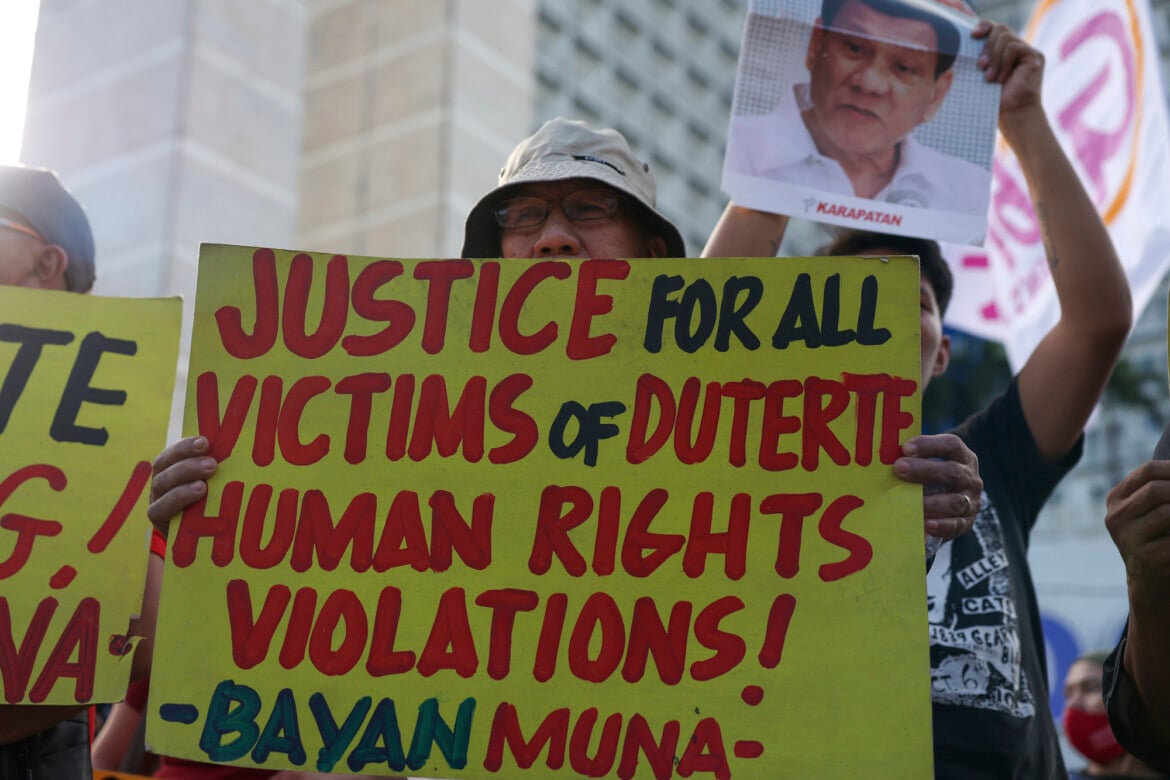Report
Duterte, whose ‘war on drugs’ killed thousands, asks what crime he commited
‘Do not question my policies because I offer no apologies, no excuses. I did what I had to do, and whether or not you believe it ... I did it for my country.’

He had said he was “happy to kill” and never denied it. “What is the crime that I committed?” he asked on Tuesday as he was stopped at Manila airport due to an ICC arrest warrant.
Rodrigo Duterte, formerly known as “the punisher,” thought he was untouchable. He had just been in Hong Kong for a series of rallies ahead of May's midterm elections, in which he was running again for mayor of Davao City, which he previously led almost continuously from 1986 to a decade ago. Instead, the former Philippine president was arrested and sent to The Hague to stand trial on charges of crimes against humanity for his bloody war on drugs. On Tuesday, shortly after 11 p.m., after a day of tension and controversy, his plane took off in the direction of the Netherlands.
“Forget the human rights laws. If I make it to the presidential palace, I will do just what I did as mayor. You drug pushers, hold-up men and do-nothings, you better go out. Because as the mayor, I’d kill you,” Duterte threatened during the 2016 election campaign. He would later fulfill that promise. According to government figures, his “war on drugs” has led to 6,284 dead among those accused of drug dealing and consumption. According to activists and the International Criminal Court, the numbers are much higher, with the dead numbering as high as 12,000 to 30,000.
A UN report points out that most of the victims were young and poor, often unarmed, with police routinely forcing suspects to confess their crimes in operations conducted without the need for search and arrest warrants. All this under the looming threat of a “death squad” of vigilantes who were the protagonists of a long series of extrajudicial killings, always denied by the government. “Do not question my policies because I offer no apologies, no excuses. I did what I had to do, and whether or not you believe it ... I did it for my country,” Duterte said during a parliamentary inquiry last October. A position he also reiterated during his last rally in Hong Kong, after he previously called the ICC prosecutors “sons of bitches.” “What did I do wrong? I did everything that I could in my time, so there is a little bit of quiet and peace for the lives of the Filipinos.”
According to critics, his campaign only targeted street pushers and never reached the big drug cartels. But when he left the presidency in 2022, Duterte still had record popularity among Filipinos. Particularly on the vast island of Mindanao, where many feel marginalized by leaders in the capital and where Duterte began his political rise by “cleaning up” Davao and presenting himself as an anti-establishment and anti-crime figure.
Duterte's former spokesperson called the arrest “unlawful detention” as Duterte had taken the Philippines out of the International Criminal Court in 2019, but the latter explained that it has jurisdiction over the country for alleged crimes committed before then. Activists called the arrest “a historic moment,” while Sara Duterte, the current vice president and daughter of the former leader, went on the attack: “This is not justice, this is oppression and persecution.” Her anger was also aimed at President Ferdinand Marcos Junior, with whom she chose to ally in the 2022 elections but is now on an open collision course. Marcos, son of the dictator Duterte's family rebelled against in the 1980s, repeatedly said he would not cooperate with investigations against his predecessor. But after clashes in recent months, during which Duterte threatened the secession of Mindanao and his daughter made death threats against the head of state, Marcos responded positively to a request for assistance issued by Interpol.
China’s Foreign Ministry commented that the ICC court should act “with caution according to the laws” and “avoid politicization and double standards.” China benefited from a pro-Beijing turn in Duterte’s foreign policy, who had also previously called Vladimir Putin an “idol” and had gone on a collision course with Donald Trump, jeopardizing a historic military treaty that Marcos has since strengthened.
Originally published at https://ilmanifesto.it/filippine-duterte-arrestato-e-diretto-allaja-per-crimini-contro-lumanita on 2025-03-12
